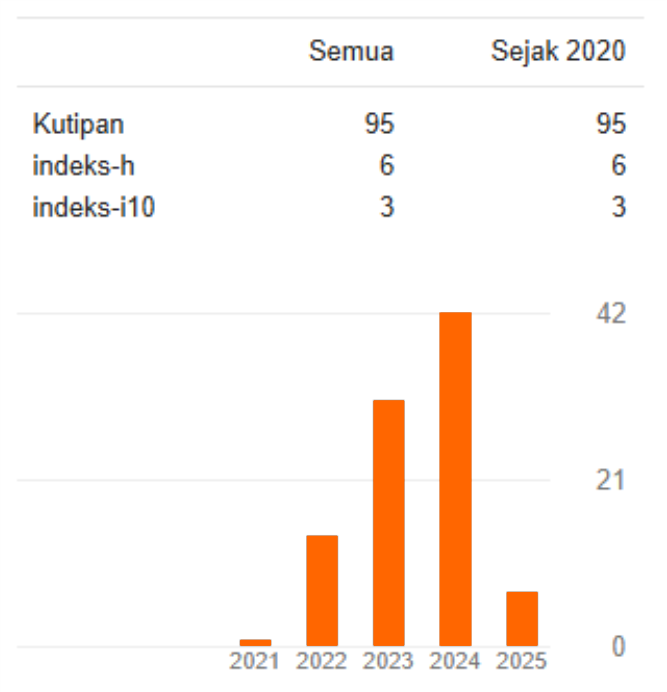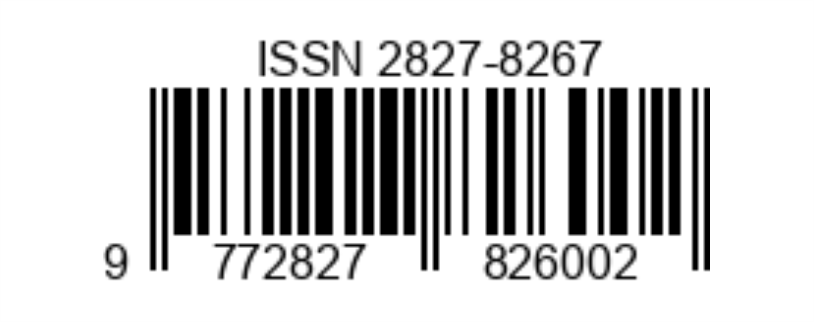The Role of Social Media and Social Influence on Firm Performance: Case Study of Financial Industry in Indonesia
DOI:
https://doi.org/10.26905/bismar.v1i2.8197Abstract
The purpose of this research is to verify the impact of social media and social influence on firm performance in Indonesia’s financial industry. Samples were taken using the judgment sampling technique with a total sample of 126 observations. This research utilizes content analysis, fixed-effects, and random-effects models to verify the effect of engaging in social media and social influence on firm performance. The empirical study consists of panel data in the financial industry listed on the Indonesia Stock Exchange (IDX) for the period 2019 to 2021. All secondary data is analyzed by moderated regression analysis (MRA) with STATA program. The results explained that social media has an impact on firm performance as estimated by return on asset (ROA). That is, a higher social media made firm can improve firm performance. The study result also suggests that social influence estimates have the pressure to predict firm performance.
Â
Â
Downloads
References
Abdillah, P. (2016). Implementation of Responsibility Accounting (Case Study at PG. Kebon Agung). Jurnal Ilmiah Mahasiswa FEB, 4(1).
Abdillah, P., Saraswati, E., & Purwanti, L. (2020). Effect of Corporate Social Responsibility Disclosure (CSRD) on Financial Performance and Role of Media as Moderation Variables. International Journal of Multicultural and Multireligious Understanding, 7(4), 457-475 doi:http://dx.doi.org/10.18415/ijmmu.v7i4
Abdullah, M. D., Ardiansyah, M. N., & Hamidah, N. (2017). The Effect of Company Size, Company Age, Public Ownership and Audit Quality on Internet Financial Reporting. Sriwijaya International Journal of Dynamic Economics and Business, 1(2), 153 - 166. doi:https://doi.org/10.29259/sijdeb.v1i2.153-166
Akmese, H., Aras, S., & Alev, K. (2016). Financial Performance and Social Media: A Research on Tourism Enterprises Quoted in Istanbul Stock Exchange (BIST). Procedia Economics and Finance, 39:705-710. doi:https://doi.org/10.1016/S2212-5671(16)30281-7
Aksak, E., & Duman, S. A. (2014). The online presence of Turkish banks: Communicating the softer side of corporate identity. Public Relations Review, 41(1). doi:DOI:10.1016/j.pubrev.2014.10.004
Alberghini, E., Cricelli, L., & Grimaldi, M. (2014). A methodology to manage and monitor social media inside a company: A case study. Journal of Knowledge Management, 18(2), 255-277.
Al-Matari, E. M., Al-Swidi, A. K., & Fadzil, F. H. (2014). The Measurements of Firm Performance's Dimension. Asian Journal of Finance and Accounting, 6(1), 22 - 49.
Armstrong, M. (2014). Armstrong's Handbook of Human Resource Management Practice 13th Edition. London: Ashford Colorur Press Ltd.
Baraldi, P., Maio, F. D., Turati, P., & Zio, E. (2015). Robust signal reconstruction for condition monitoring of industrial components via a modified Auto Associative Kernel Regression method. Mechanical Systems and Signal Processing, 60 - 61. doi:10.1016/j.ymssp.2014.09.013
Chung, N., & Koo, C. (2014). The Use of Social Media in Travel Information Search. Telematics and Informatics, 32(2), 215-229
Daowd, A., Kamal, M. M., Eldabi, T., & Hasan, R. (2021). The Impact of Social Media on the Performance of Microfinance Institutions in Developing Countries: A Quantitative Approach. Information Technology & People. doi:DOI:10.1108/ITP-03-2018-0135
Du, H., & Jiang, W. (2014). Social Media Matter? Initial Empirical Evidence. Journal of Information Systems, 29 (2), 51-70
Dutot, V., & Lichy, J. (2019). The role of social media in accelerating the process of acculturation to the global consumer culture: An empirical analysis. International Journal of Technology and Human Interaction (IJTHI), 15(1), 65–84. doi: DOI:10.4018/IJTHI.2019010105
Emrinaldi, N. D. (2021). The Impact of Social Media on Firm Value: A Case Study of Oil and Gas Firms in Indonesia. Journal of Asian Finance, Economics and Business, 8(3), 987-996
Fukuyama, F. (1999). Social Capital and Civil Society. Virginia: The Institute of Public Policy, George Mason University.
Jackson, J. M., & Latane, B. (1981). Strength and Number of Solicitors and The Urge toward Altruism. Personality and Social Psychology Bulletin, 7,415-422.
Jamal, A. A., Ramlan, W., Mohidin, R., & Karim, M. R. (2015). The Effects of Social Influence and Financial Literacy on Savings Behavior: A Study on Students of Higher Learning Institutions in Kota Kinabalu, Sabah. International Journal of Business and Social Science, 6(11).
Kasmir. (2014). Analisis Laporan Keuangan, Edisi Pertama, Cetakan Ketujuh. Jakarta: PT. Rajagrafindo Persada.
Kemp, S. (2022, July 25). DIGITAL 2022: INDONESIA. Retrieved from dataportal.com: https://datareportal.com/reports/digital-2022-indonesia
Laksmi, & Elnumeri. (2020). Issues of Social Capital in Developing Collaboration of Information Professional Organizations in Indonesia. LIBRARIA: Jurnal Perpustakaan, 8(2).181-210
Latane, B., & L'Herrou, T. (1996). Spatial Clustering in The Conformity Game: Dynamic Social Impact in Electronic Groups. Journal of Personality and Social Psychology, 70(6), 2018-1230 doi:https://doi.org/10.1037/0022-3514.70.6.1218
Luo, P., Chen, K., & Wu, C. (2016). Measuring Social Influence for Firm-Level Financial Performance. Electronic Commerce Research and Applications, 20, 15-29. doi:http://dx.doi.org/10.1016/j.elerap.2016.09.004
Luo, P., Guo, G., & Zhang, W. (2022). The Role of Social Influence in Green Travel Behavior in Rural China. Transportation Research Part D: Transport and Environment, 107. doi:https://doi.org/10.1016/j.trd.2022.103284
Mariutti, F., & Giraldi, J. M. (2020). Country Brand Equity: The Role of Image and Reputation. BAR - Brazilian Administration Review, 17(3):1-24. doi: https://doi.org/10.1590/1807-7692bar2020180128
Miqdad, M., & Oktaviani , S. A. (2021). The Contribution of Social Media Value to Company's Financial Performance: Empirical Evidence from Indonesia. The Journal of Asian Finance, Economics and Business, 8(1). doi:https://doi.org/10.13106/jafeb.2021.8(1), 305-315
Muntiah, S. (2013). Pengaruh Mekanisme Corporate Governance terhadap Kinerja Perusahaan (Studi Perusahaan Manufaktur yang Terdaftar di Bursa Efek Indonesia Periode 2010-2012). Jurnal Akuntansi & Keuangan Kontemporer, 2(2), 83-101
Obeitoh, O. (2018). Social Capital and Financial Performance of Small and Medium Scale Enterprises. Penerbit Akademia Baru.
Reilly, A. H., & Hynan, K. A. (2014). Corporate Communication, Sustainability, and Social Media: It’s Not Easy (really) being Green. Business Horizons, 57, 747-758.
Sikarwar, T. S. (2019). Social Influence and Individual Financial Behavior for Digital Banking: A Causal Study. International Journal of Accounting and Financial Reporting, 9(4), 242-159. doi:https://doi.org/10.5296/ijafr.v9i4.15905
Uyar, A., Boyar, E., & Kuzey, C. (2018). Does Social Media Enhance Firm Value? Evidence from Turkish; Firms Using Three Social Media Metrics. The Electronic Journal of Information Systems Evaluation, 21(2), 131-142.
Wang, Z., Wang, N., & Liang, H. (2014). Knowledge sharing, intellectual capital and firm performance. Management Decision , 52(2), 230-258. doi:10.1108/MD-02-2013-0064
Weller , K. (2015). Trying to understand social media users and usage. Online Information Review, 40(2). 256- 254
Downloads
Published
Issue
Section
License
Authors who publish with this journal agree to the following terms:
(1)Â Copyright of the published articles will be transferred to the journal as the publisher of the manuscripts. Therefore, the author confirms that the copyright has been managed by the journal.
(2) Publisher of Jurnal Penelitian is University of Merdeka Malang.
(3) The copyright follows Creative Commons Attribution–ShareAlike License (CC BY SA): This license allows to Share — copy and redistribute the material in any medium or format, Adapt — remix, transform, and build upon the material, for any purpose, even commercially.







